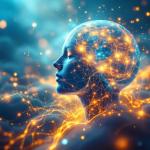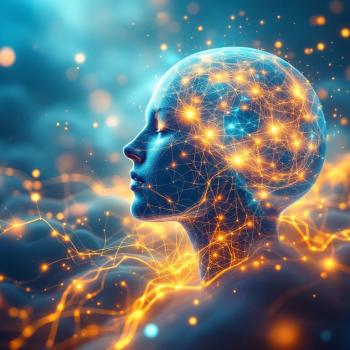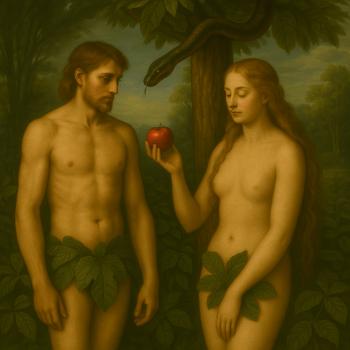Richard Dawkins and other scientists are interested in transcendent experiences. They are NOT seeing anything personal or supernatural. Scientists are simply imagining something natural that we might ultimately be able to explain with biology, chemistry and physics.
I wrote about my dinner with Richard Dawkins, an evolutionary biologist and a prominent atheist, here. In that column, I described his considerable curiosity and his noteworthy open-mindedness.
Dawkins reportedly has a very high IQ, and he does NOT suffer fools gladly. I have seen him summarily dismiss fools and their questions. So, I was NOT eager to be summarily dismissed like the other fools. Still, the opportunity to learn (or unlearn) something was too alluring.

Mystical, Peak or Transcendent Experiences
In The Way, I write about mystical, peak or transcendent experiences, which can occur while meditating or praying, experiencing art or nature, having seizures or strokes, receiving brain stimulations or taking hallucinogenic drugs.
These experiences are characterized by their ineffability, noetic quality, transiency, passivity, unity and timelessness. People who have them often report that they encounter their true selves, Truth with a capital T.
Generally, they encounter a presence, NOT a person. They feel a Oneness, NOT a cosmic rift between God and humans. They sense an immediacy in the here and now, NOT a journey to another place or time. In other words, these experiences are NOT inherently theistic.
I asked Dawkins whether he thought that transcendence was an objective occurrence in the world or a subjective occurrence in the brain. “It happens in the brain,” he said, “but that doesn’t diminish it.” (In some sense, everything happens in the brain anyway.)
Someone else asked, “Is transcendence nonsense?” “NO,” he exclaimed adamantly, “Transcendence is NOT nonsense. ”
Richard Dawkins and other scientists are interested in transcendent experiences. Are such experiences natural or supernatural?
God Helmets and Hallucinogens
Dawkins said that he and an Anglican vicar once received brain stimulations to prompt transcendent experiences. The experiment used a Koren helmet, sometimes called a “God helmet.” Although the helmet often produces this effect, it did NOT work for Dawkins or the vicar.
Dawkins thinks that vicar might have been reluctant to admit that a transcendent experience can be prompted, that God can be conjured.
I think that the vicar also might have been surprised to learn that a transcendent experience can be perceived impersonally and naturally. This is very different from the personal and supernatural experience that Christianity leads us to expect.
Dawkins and his wife both seemed intrigued by the mind-altering capabilities of hallucinogens, although neither has experimented (yet?)
This is another way to prompt transcendent experiences. Those who use hallucinogens report that the feeling is similar to meditation, but that a hallucinogenic experience can be even more accessible and more profound than a meditation or prayer experience.
Dropping the Filters
In The Way, I surmised (as others have suggested) that art, brain stimulation, hallucinogens, meditation, nature, prayer, seizures or strokes are all ways of dropping the filters that might otherwise block transcendent experiences.
Without those filters, we might not be able to function. We might be overwhelmed by perceiving each blade of grass and every drop of dew. Still, we might perceive a boundless Oneness that is always present but seldom revealed.
Jill Bolte Taylor, a neuroscientist, experienced a stroke in the left side of her brain. (The left brain is analytical and logical, whereas the right brain is creative and intuitive.) As Taylor was losing her mental acuity, she had a transcendent experience. This is NOT woo-woo stuff.
She talked about it in her “My Stroke of Insight” book, as well as her TED Talk, which is available on YouTube:
There’s Something Happening Here
Clearly, something is happening in the brain, as Dawkins suggests. Is it also possible that the unfiltered glance reveals an ever-present Ultimate Reality that we do not normally see, something like Brahman, Tao or Void in Hinduism, Taoism or Buddhism, respectively?
Keep in mind that Brahman, Tao and Void are all terms for the underlying Oneness, which is not necessarily personal or supernatural.
Does the transcendent experience reveal something like the God of Christianity? How so? If so, why do some Christians dismiss mystical or transcendent experiences, and why does Christianity describe its God as an anthropomorphic, detached and judgmental deity?
Many who have transcendent experiences describe them as powerful and profound, more real than you or me or anyone or anything else. So, if these experiences do NOT reveal the God of Christianity, then why not, and where else could we possibly encounter such a God?
Richard Dawkins and other scientists are interested in transcendent experiences. They are NOT seeing anything personal or supernatural. Scientists are simply imagining something natural that we might ultimately be able to explain with biology, chemistry and physics.
Are such experiences natural or supernatural?












